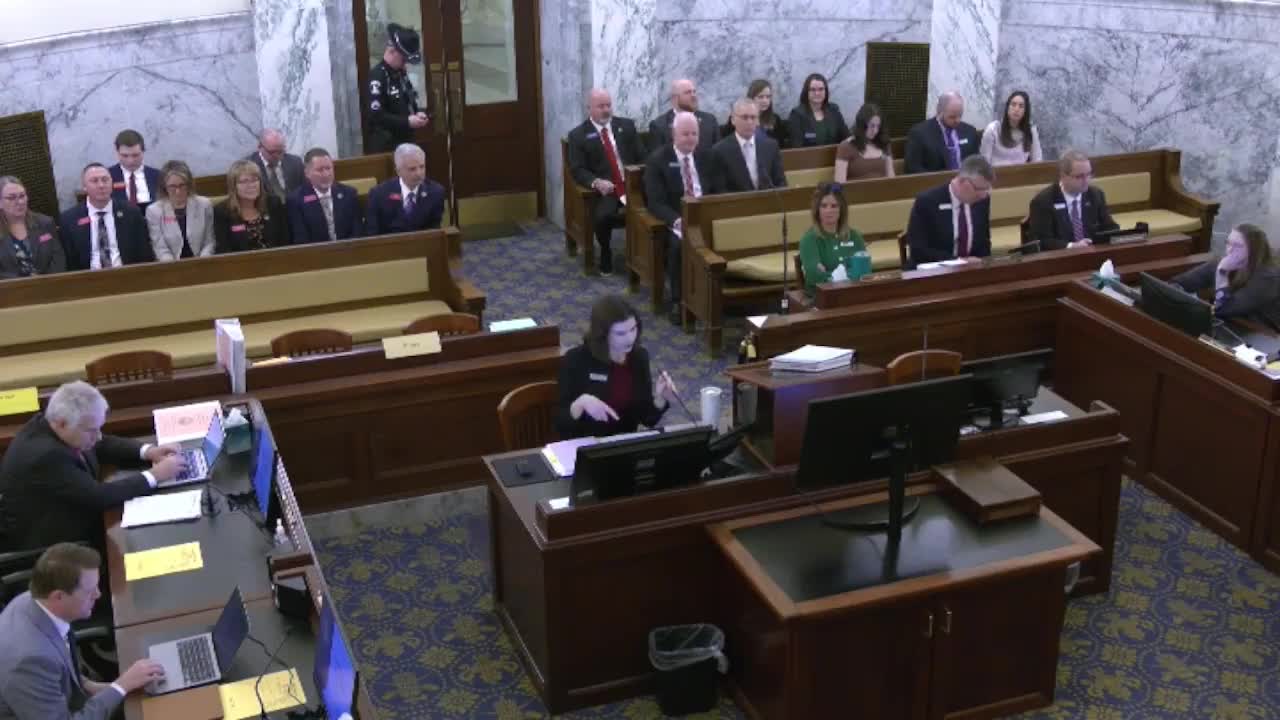Legislative panel reviews Department of Administration budget, flags governor's housing stipend shortfall
Get AI-powered insights, summaries, and transcripts
Subscribe
Summary
The Joint Finance-Appropriations Committee reviewed the Department of Administration's FY2026 budget request, including a plea to stabilize the governor's housing fund and ongoing concerns about dedicated fund accounting and deferred maintenance funding.
The Joint Finance-Appropriations Committee in Boise reviewed the Department of Administration's fiscal 2026 budget request and heard that the governor's housing fund lacks a sustainable revenue source and will be exhausted without new appropriations.
Frances Lippitt, a budget and policy analyst with Legislative Services, told the committee that the governor's residence fund "provides a monthly housing stipend to the governor currently set at 4,551," and said the fund had no consistent revenue source. Lippitt told the panel the department had requested a $30,000 general fund appropriation for fiscal 2025 (which the Legislature did not grant) and that the department was now seeking funding for fiscal 2026; the presentation included a $60,600 figure but later slides referenced $660,600. The department did not resolve that discrepancy during the hearing.
The nut of the presentation was the department's role and funding mix. Lippitt described the Department of Administration as housing four divisions, providing services such as design and construction, facility maintenance, statewide procurement, employee benefits, and centralized postal and copy services; she said about 10% of the department's appropriation is from the general fund and most of its budget is drawn from dedicated funds paid by state agencies. Lippitt also said the department's statutory authority is found in Chapter 57, Title 67 of the Idaho Code.
Director Steve Bailey, the department director, told the committee the Governor's Housing Committee meets annually and that, while there had been past discussion about constructing a governor's mansion, "we haven't really gained any traction on those discussions." Bailey said the committee's position in the most recent meeting was to continue the stipend while discussions about a mansion remain unresolved.
Committee members pressed department staff on fund accounting and off‑budget items. Lippitt explained that several components of the department's funds (notably the group insurance fund and certain permanent building fund categories) are continuously appropriated, which the analyst described as "off budget" for those expenditures because statutory continuous appropriation permits spending from those lines without annual reauthorization. Representative Tanner requested a follow‑up showing all continuous appropriations tied to the retained risk account.
The committee also heard staffing and workload details: Lippitt said the department is currently authorized 334 full‑time equivalents (FTP) and has filled about 92% of those positions over five years; personnel costs were described as consuming a substantial share of the appropriation in recent years. Director Bailey and his staff answered questions about the Chinden Campus, deferred maintenance investments and recent facility upgrades, and the department's requests for several new positions (for example, project managers and risk/property valuation staff) to manage increasing workloads.
Ending: Committee members asked the department to provide follow‑up materials, including the Governor's Housing Committee report and a breakdown of continuous appropriations and fund investments. No formal action or vote on appropriation levels occurred during this hearing; the session was a budget review and question period.
